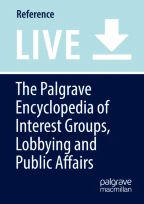
Maslow was an American psychologist who is considered the father of humanistic psychology. Maslow was a very inspirational figure in personality theories, and his primary contribution to psychology is Maslow’s Hierarchy of Needs, which contends that humans have a number of needs that are innate and that needs are arranged in a hierarchy in terms of their potency.
Maslow received his Ph.D. from the University of Wisconsin in 1934, taught at Brooklyn College from 1937, and was head of the psychology department at Brandeis University from 1951 to 1969. His theory of human motivation led to a therapeutic technique known as self-actualization. His influential works include Motivation and Personality (1954) and Toward a Psychology of Being (1962).
A theory of human behavior proposed by Abraham H. Maslow which contends that that people are motivated by five innate needs, and that, as humans meet “basic needs,” they seek to satisfy successively “higher needs” that occupy a set hierarchy.